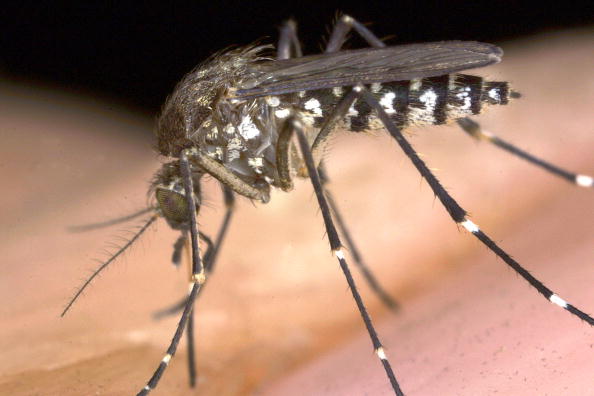-
Tips for becoming a good boxer - November 6, 2020
-
7 expert tips for making your hens night a memorable one - November 6, 2020
-
5 reasons to host your Christmas party on a cruise boat - November 6, 2020
-
What to do when you’re charged with a crime - November 6, 2020
-
Should you get one or multiple dogs? Here’s all you need to know - November 3, 2020
-
A Guide: How to Build Your Very Own Magic Mirror - February 14, 2019
-
Our Top Inspirational Baseball Stars - November 24, 2018
-
Five Tech Tools That Will Help You Turn Your Blog into a Business - November 24, 2018
-
How to Indulge on Vacation without Expanding Your Waist - November 9, 2018
-
5 Strategies for Businesses to Appeal to Today’s Increasingly Mobile-Crazed Customers - November 9, 2018
Is Zika Virus Dangerous Past The First Trimester? Researchers Say Yes
A new body of evidence pointing to the Zika virus as the cause of devastating birth defects in unborn children grew significantly stronger on Friday. These problems included microcephaly, a rare condition where a baby takes birth with a small head.
Advertisement
“Our study shows once the virus gets to the brain it can reach these very important cells”, researcher Hengli Tang, the study’s lead author from Florida State University, said in an interview.
The virus was able to infect up to 90% of neural progenitor cells in a sample leading to nearly a third of cells dying and the growth of the rest being disrupted.
Eight travel-associated cases of Zika have been confirmed in California since the start of 2016 according to California Department of Public Health records as of March 4.
Published in the journal Cell Stem Cell, the study involved laboratory experiments wherein the scientists used petri dishes.
Scientists are trying to understand whether and how the Zika virus might be causing birth defects. “Now you can be studying the virus in the right cell type, screening your drugs on the right cell type and studying the biology of the right cell type”. It has given proofs needed to show that microcephaly is strongly linked to Zika infection, said Amesh Adalja, an expert of infectious diseases from the University of Pittsburgh Medical Center’s Center for Health Security.
According to the World Health Organization (WHO), a person with Zika virus disease usually have symptoms that can include mild fever, skin rashes, conjunctivitis, muscle and joint pain, malaise or headache which normally last for two to seven days.
Now, one team at Johns Hopkins University School of Medicine may have discovered a critical clue. Those ultrasounds found issues in about 29 percent of the infected women.
The main takeaway from the new study is that Zika can affect women anytime during their pregnancy, not just the first trimester, as previously thought.
Advertisement
The Atlanta-based agency is warning pregnant women to avoid more than 30 areas where the Zika virus is actively spreading. But unlike some of those viruses, there is no vaccine to prevent Zika or medicine to treat the infection.





























